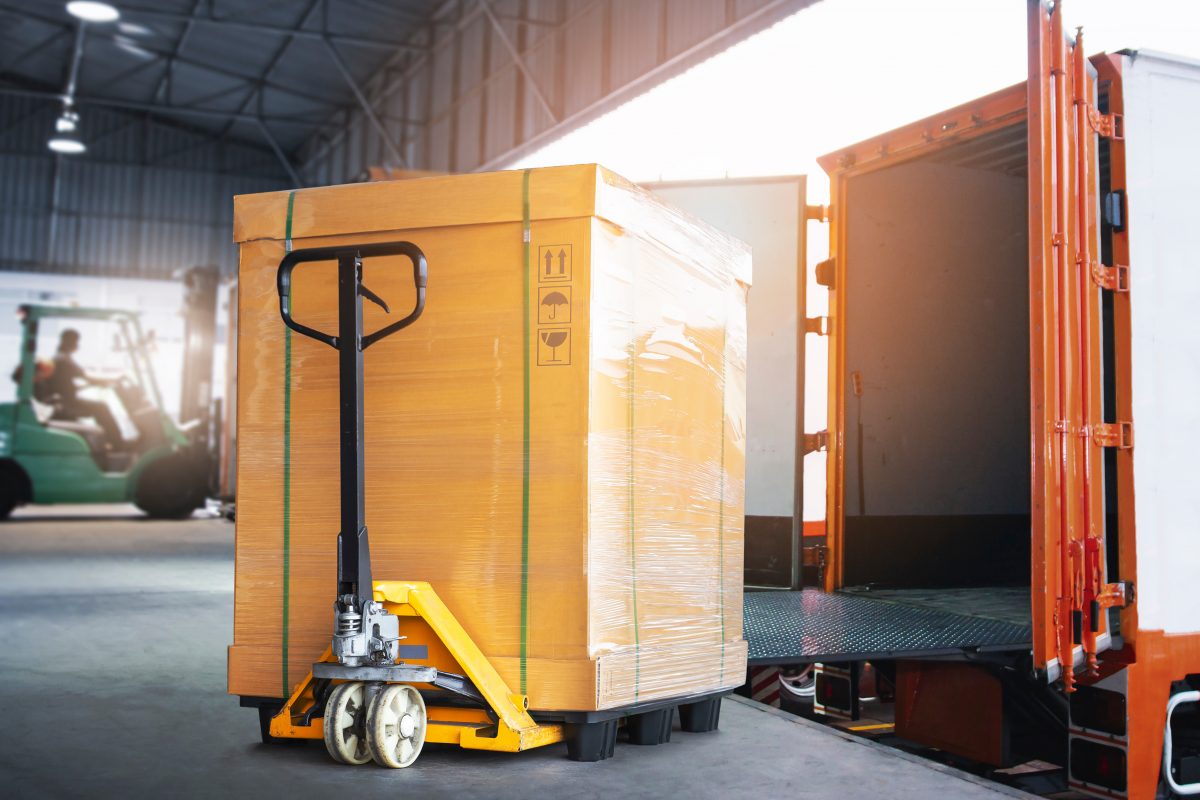B2B order fulfillment is shipping bulk orders for businesses. Retailers store the products in warehouses that serve as their distribution centers to deliver to their customers via freight or parcel.
With the massive growth of B2B commerce, there is a major shift in how companies manage their B2B order fulfillment. There is comparatively more focus on inventory control, speed, and the capability to meet order deadlines. Processing batch orders at a faster pace is the primary concern for managers handling B2B order fulfillment.
B2B Order Management System
B2B order management system tracks the orders placed by another business and manages the fulfillment process efficiently. This system is basically a software platform or technology that centralizes and track orders, inventory levels, and shipment status.
ALSO READ: #InsightsByXPDEL – Black Friday, Cyber Monday & Thanksgiving Significance & Tips
A typical B2B order management system includes multiple processes such as the following:
- Enter the order in the order tracking system
- Send order confirmation to the customer business
- Products are sorted and allocated
- Order sent to the warehouse for picking, packing, and shipping
- Dispatch confirmation forwarded to the customer company
- Order is delivered and received by the customer company
Here are the most reputed and commonly used types of the order management system used by businesses:
- eCommerce back-end
- Spreadsheets
- Standalone order management software
- Enterprise Resource Planning (ERP) Software
- Retail and B2B operations platforms
Challenges of Order Management for B2B Business
With the rise of more widespread use of B2B eCommerce, here are some of the challenges of the B2B order management system:
- Requirement for EDI. Current advancements in technology played a critical role in changing the goods management process. Nowadays, it is mandatory to implement a supply chain Electronic Data Interchange [EDI] system in place.
- Complex Global Supply Chain. An efficient order management system is the prerequisite for B2B order fulfillment, especially in a multi-national company. They have specific standards and formats and will expect you to have systems in place that can connect with their software applications for smooth operations.
- Multichannel Selling and Online Shopping. You require efficiency and speed to handle B2B order fulfillment as it’s usually a bulk order. Nowadays, businesses leverage more than one channel to conduct transactions and place orders in the B2B segment. Your inventory needs to get updated across all channels, as a lack of updates or inaccurate inventory updates can’t lead to successful fulfillment.
- High Expectation of Purchasers. B2B purchasers place batch orders and thus expect nothing short of high standards of professional order fulfillment. Lately, millennial B2B buyers expect experiences like B2C fulfillment such as seamless navigation, fast checkout, speedy delivery, and top-notch customer service.
- Diverse Ordering Demands of Wholesale Customers. B2B customers often have a variety of business process-related needs which you require to comply with, such as:
- Different payment/credit options and credit terms such as proforma invoices, deposits, split payments, and payments on account
- Diverse delivery options such as partial fulfillment, drop shipping, and back-to-back ordering
- Online order management
- Back orders and pre-orders
- Orders on the road
- Bulk discounts
- Regular communication and personalized updates
ALSO READ: Faster Delivery – 2-Day Delivery
What to Look for in a B2B Fulfillment Service?
B2B fulfillment is not an easy process and plays a crucial role in your business. You need to ensure that your fulfillment partner meets specific key requirements, has a history of not missing deliveries, has prior industry experience and provides customer service as required. However, here are some of the critical factors to look for in a partner providing B2B fulfillment service provider:
EDI Compliance. EDI compliance is essential in the efficient processing of order fulfillment. You can send a digital purchase order and receive an invoice or other transaction documents. It is a combination of both system and process so you can exchange documents and transactions in a standard electronic format.
Customer Care. Order fulfillment might have issues after dispatch and before delivery to the customer. Hence, you must hire a service provider that can provide efficient customer service and work closely with your brand.
Order Dashboard. Technological advancement is an important criterion to check before selecting B2B fulfillment service provider. They should provide you with the capability to track your orders, track packages/shipment, and place orders easily within the same interface.
ALSO READ: How Real-Time Inventory Empowers eCommerce Growth?
Conclusion:
B2B eCommerce is growing in leaps and bounds as more companies realize the efficiency and advantages of ordering products online. However, you require an efficient logistics provider to partner with. All 3PLs are not experienced or equipped to provide B2B order fulfillment services. So, evaluate your options carefully and make the right choice to enable business growth.
About XPDEL:
XPDEL is a leading hi-tech provider of fulfillment and logistics services, on a mission to enable growth for eCommerce companies. We are futuristics in our vision and constantly work on creating technology that helps us meet customer expectations for today and tomorrow. We have a widespread network of fulfilment centers that enables us to efficiently handle nationwide delivery in the US – same day, next day, 2-day delivery. Being closer to the end consumer, we deliver much faster than others.

